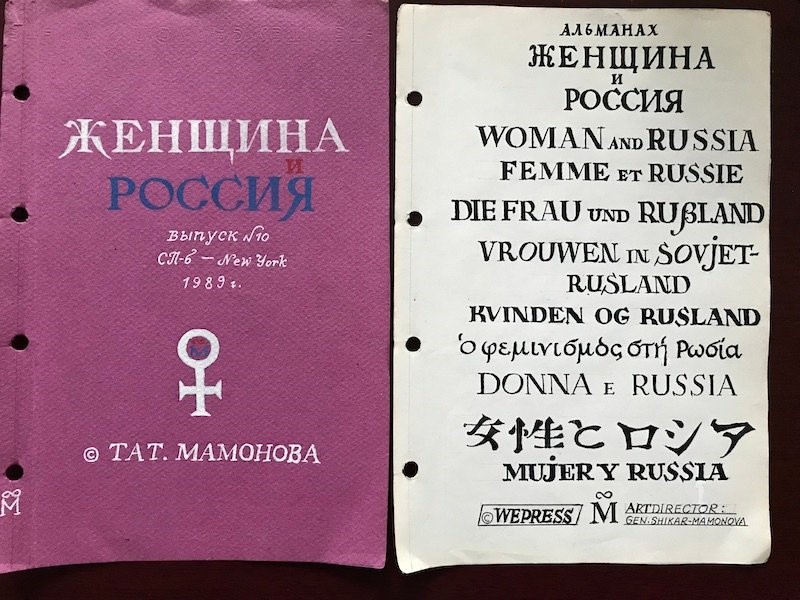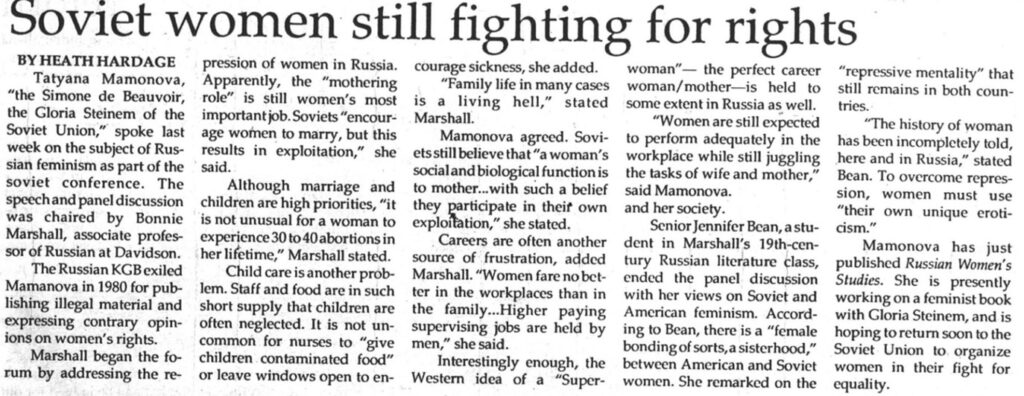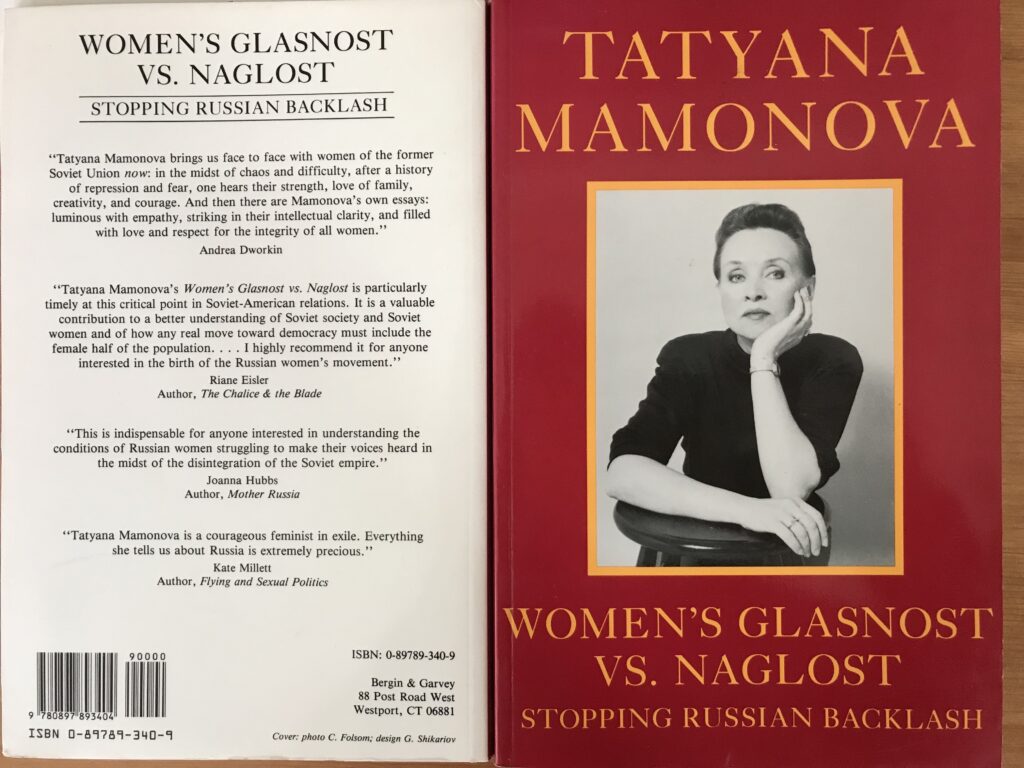Kseniia Koroleva majored in education at Murom University. Prior to arrival to Davidson, she taught English as a foreign language in Russia. She is a Fulbright scholar and has been at Davidson since 2020. She works as a Russian teaching assistant for the Russian Studies Department and is involved in the Humanities program.
The beginning of perestroika and glasnost’ (movements for political reforms and reconstruction) under the leadership of Mikhail Gorbachev empowered the Soviet people to express their views and opinions more freely. Subsequently, it resulted in many suppressed social and political issues coming to the surface. The surge of openness in the Soviet Union galvanized new discussions and forums around the political and social challenges of the Soviet government. To educate Davidson college students and the general public about current developments in political, social, and economic aspects of the USSR, the Dean Rusk program sponsored a two-day conference on October 10 and 11, 1989 [1].

The conference brought together many prominent speakers from different fields. One of them was Tatyana Mamonova. She was the first feminist and advocate for women’s rights in the Soviet Union. Tatyana’s criticism of the governmental system regarding women’s rights was seen as a threat by the Soviet ruling party. It led to Tatyana being interrogated numerous times about her Woman and Russia journal and connections with other feminist authors [2]. Eventually one morning KGB forced her to leave the Soviet Union in 1980[3]. Despite all that, Tatyana continued her feminist work.

The Soviet conference held at Davidson college allowed Tatyana to share in depth about challenges that women in her native country had to face. She stressed how forcing the mothering role on women constrained them and immensely limited their participation in social and political spheres of life [4]. Tatyana’s talk made it possible for those who attended the lecture to see how the portrayal of the Soviet Union as an equal society was fundamentally wrong.

Undoubtedly, there were more career opportunities for women during the Soviet times. However, as a result, women had to take on many more duties combined with their already excessive household and childcare responsibilities and men kept on holding their privileges [5]. Thus, the changes in the current at that time governmental system caused greater exploitation of Soviet women and created new unreasonable expectations of their performance at work and at home.
Today we can see a rising appreciation of women’s contributions in different professional fields and many more people recognize that mothering duties should not be defined as a women’s obligation and the only possible role for their self-realization. Unfortunately, a lot of women in Russia still feel like they have to conform to the old patriarchal system and work much harder than men in order to be taken seriously in their occupations.

[1] “Reform or revolution in the Soviet Union today?” Davidsonian [Davidson, NC] 20 September 1989. p.3.
[2] Mamonova, Tatyana, Sarah. Matilsky, Rebecca. Park, and Catherine A. Fitzpatrick. Women and Russia: Feminist Writings from the Soviet Union. Boston: Beacon Press, 1984. p.215-216.
[3] Afkhami, Mahnaz. Women in Exile. Charlottesville: University Press of Virginia, 1994.p.158.
[4] “Soviet women still fighting for rights”. Davidsonian [Davidson, NC] 19 October 1989. p.3.
[5] Mamonova, Tatyana, Margaret. Maxwell, and Margaret Maxwell. Russian Women’s Studies: Essays on Sexism in Soviet Culture. 1st ed. Oxford: Pergamon Press, 1989. p.168.

Speak Your Mind